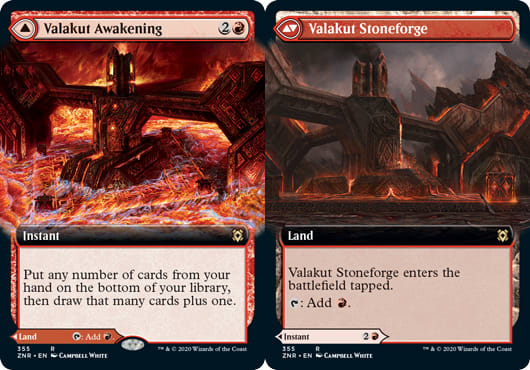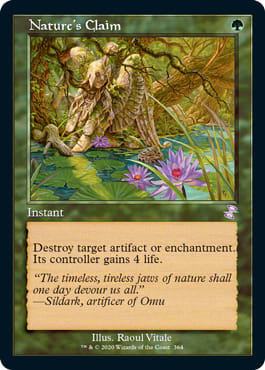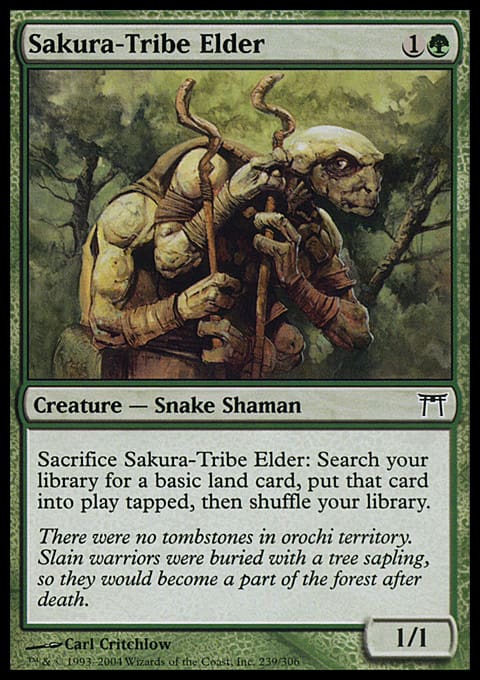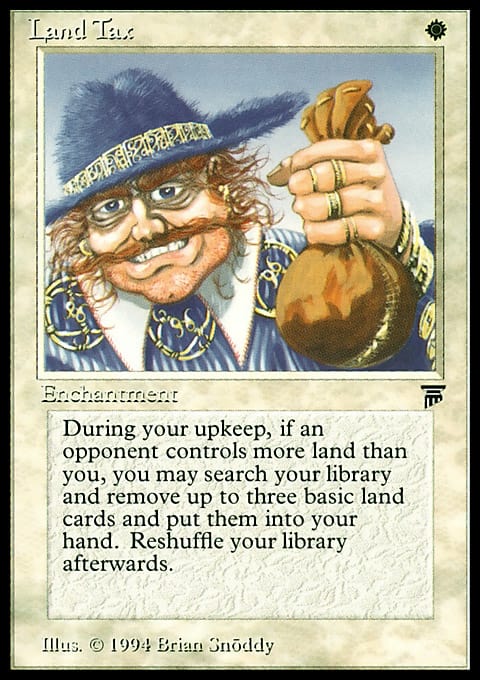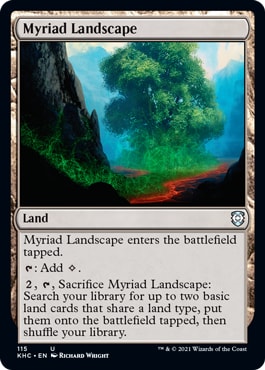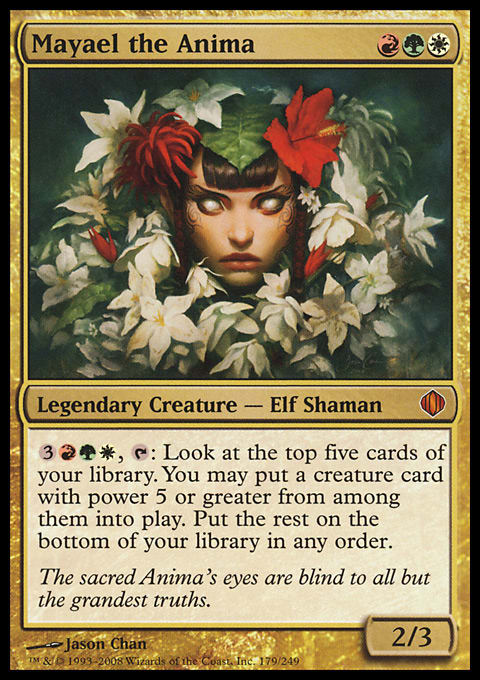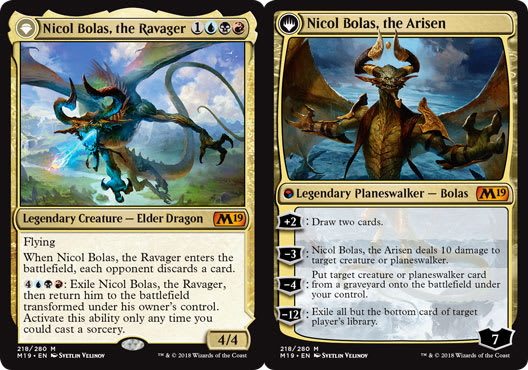There's no right or wrong way to play Commander, which is the beauty of the format. I've been a part of handful of different playgroups over the past ten years, and each had its own tendences and agreed-upon ways to play. But while some things vary from group to group, there are a couple of things I've picked up over the years that I believe has helped no matter which group I'm in, so I hope they can be of some help to you as well.
4. Always Add an Extra Land
This is pretty much an adage I've picked up over my years of doing tournament coverage. I don't recall which pro it was, but one told me the first thing they did whenever anyone sent them a decklist to try out, was to add a land to the list. The idea is that players inevitably get excited about the sweet cards they're playing and somewhere along the way will skimp on a land or two.
I think the same can be applied safety to Commander. Whenever I complete my first draft of a deck (I'm currently working on Archelos, Lagoon Mystic), I try to consciously add a couple of lands to the deck. While that can be as simple as throwing another two Forests in there, it's also a chance to sort of guilt-free jam some of those more speculative lands like a greedy Temple of the False God or Ancient Tomb, or situational lands (I think we should probably all play more Scavenger Grounds).
This "rule" is even easier to follow with the advent of so many modal double-faced cards that are also lands. Bala Ged Recovery is a new super staple, and things like Ondu Inversion, Agadeem's Awakening, Sea Gate Restoration, and Valakut Awakening are all awesome inclusions in most decks. Zendikar Rising was my favorite release of the past few years, and the nature of the spell/lands meant that it was suddenly much simpler to cheat a few more lands into decks - Ondu Inversion can replace another expensive boardwipe, Valakut Awakening is a budget replacement for Wheel of Fortune, Agadeem's Awakening and Sea Gate Restoration are both powerful spells in their own right - it was easy to replace spells with the Zendikar Rising modal cards, which allowed us to invisibly add two or three land slots to decks.
That's huge for Commander, which takes the normal variance of Magic and cranks it up to 99 with the singleton format, which can lead to big swings of playable or not-playable hands in a row, even for decks with the "right" number of lands. It's pretty rare that I end up with too much mana and nothing to do with it in Commander, so always adding a land is a rule I try to build by.
3. Play More Interaction
This is more of a personal preference than anything, but my experiences playing Commander over the years has led me to believe that my games are more enjoyable when there's a back-and-forth over who will win, with big swings along the way. But when I first began playing the format, everyone would just do their own thing and build out an impressive board, which would then stalemate with everyone else's impressive board, and games came down to kingmaker situations more often - which can be fun but can sometimes leave people feeling targeted when they come up often.
I'm not saying go so far as to build Wrath of God Tribal - especially in a world of webcam Commander where you don't want to drag games out - but cutting some draw spell for a good old Krosan Grip has never hurt anyone.
Playing targeted answers also helps keep the aggro from coming back on you. If the table agrees that a particular permanent like Greater Good is a problem, the options are either to attack the Greater Good or attack the player. Teaming up 3v1 in that instance is common, but I know it's no fun to be on the receiving end of that. But throwing a Krosan Grip at the Greater Good for the... greater good of the table? It'll save the game sometimes or help you play table politics; playing more interaction is always a goal of mine in deckbuilding.
Also remember that you're allowed to play more than just Bojuka Bog for graveyard hate! We're spoiled these days with so many card-efficient options like Relic of Progenitus, Soul-Guide Lantern, or Nihil Spellbomb, so I've been trying to make room for a few cards in that spot.
2. Shortcut Responsibly
I've said it before, but shuffling sucks. Especially when that shuffling comes on the end step right before the player cracking their Windswept Heath untaps. Inevitably, the card they're searching up will always be on the opposite side of the deck, and the game lags. It's not a huge time suck, but it does stall momentum.
This is how my playgroup has approached it: if you play a Sakura-Tribe Elder on turn two, you're free to go ahead and start searching your deck preemptively on the assumption you're going to sacrifice it in the end step right before your turn. The Elder is still considered in play until that end step - basically, we're reversing the order from sacrifice-search to search-sacrifice in order to save time on the shuffling side of things. It's an easy fix if shenanigans like Opposition Agent occur, but in general this has helped to keep our games flowing and move through the first couple of setup turns really efficiently. For a group with a bunch of different schedules that can only play once a week, any time save is appreciated!
That goes for Sensei's Divining Top as well. I've actually cut the Top from some of my decks - my thought process is that Commander decks in general are less clunky than they were in the early days of the format where Top was considered an auto-include - but lots of people have played Top and a lot of us have experienced the slow Top player who chews up time on the endstep endlessly resorting the top three cards of their library. So if I play a Sensei's Divining Top, I do my best to Top responsibly and make my decisions quick in consideration of other players waiting on me.
1. Enjoy Pet Cards
I've sometimes wondered what it would be like to go back and play Commander in the world before Wizards of the Coast became involved, and it was still EDH and played much differently. Because Commander is such a fun way to play Magic - me and three of my friends sharing pizza and playing cards casually is my favorite way to game - there was no doubt that Wizards would find a way to get their hands into the pie.
And that's generally been a good thing. The annual Commander releases have done a ton to grow the game, and while I haven't been a fan of all the cycles (looking at you, commanderstorm and free-spells ...), the decks have generally been creative and fun to play out of the box while being reasonable to play in a public game with few changes.
But it has given us an abundance of riches. We live in a world of super-staples like Dockside Extortionist and Hullbreacher and Fierce Guardianship, and once you start throwing in all the powerful cards that have been released for Commander in the past five years, it's easy to end up with a goodstuff list that lacks any of the fun or quirky cards that drew me to the archetype in the first place. Working on a Sultai list with Archelos, that's exactly the conundrum I'm encountering - those colors boast both some of the most ubiquitous as well as redundant spells - and going down that rabbit hole can quickly lead you with to a 175-card pile for 100 slots.
I don't want my decks to be just a list of the top 50 spells on EDHrec in those colors. I've built six decks in my life and still play them all regularly, and each one has a strategy that's coherent throughout the deck - Mayael the Anima has five-power creatures, deck, Karador a Wrath deck, Nicol Bolas, the Ravager is Bolas Tribal, etc.
I feel like there can sometimes be some social pressure about playing or not playing "must-includes" like Cyclonic Rift or Sol Ring or Smothering Tithe or Hullbreacher and so on, so one of my rules for my own deckbuilding has been to always have room for a few fun spells or cards that have fond memories associated with them, even if they're outdated by 2021 Commander standards. I try to adhere to the Jason Alt 75% school of Commander, so if I have a cool foil I have of a card that's probably worse than something they've printed in the past two years, I'm going to play the cool foil and not stress about optimizing my deck fully. Sometimes, creating the best play experiences isn't about what you do, it's about what you don't do.
Thanks for reading,
Corbin Hosler













